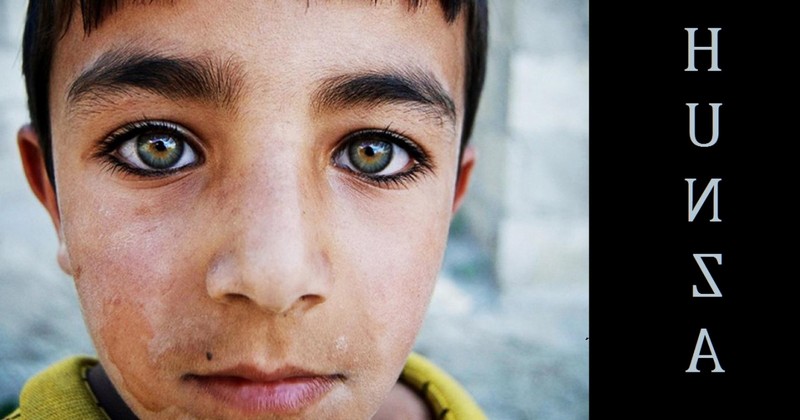The Hunza: the eastern tribe of eternal youth

A Pakistani people known for the longevity of its members. What is real in this story?
In the north of Pakistan, more than a thousand meters above sea level and among glacier-covered mountains, live the Hunzakuts. hunzakutsknown as "Hunza" in Western countries.
Not only do these people look more like Caucasians than the rest of the country's inhabitants, but they are credited with something that has given rise to hundreds of articles over several decades: the tendency to live more than 110 years and reach old age in very good health..
Moreover, the first stories that reached the West about the Hunza suggest that the possible explanation for their good health was not to be found in their biology, but in their habits. The fact that the Hunza maintain a vegetarian diet provided a clue: "we are what we eat". Could it be possible to extend our lives by so many decades by modifying our behavior?
Hunza: an oasis of youth
The Hunza river valley, located in a territory difficult to access and isolated from its surroundings by high mountains, presents the characteristics that any romantic can relate to Eden. A natural and little explored territory, primitive peoples living in it according to traditions, far from the production machinery and processed foods of technologically advanced societies.
In fact, it is said that the Hunza the Hunza are said to be descended from soldiers in the army of Alexander the Great who got lost crossing the territory and created a society isolated from the others; this would explain why the language they speak has not been related to any of the great linguistic families of Asia.
So we have it all: a charming natural environment, an origin that speaks to us of Westerners re-educating themselves to reconcile with nature, a vegetarian diet (and, therefore, more culturally linked to "goodness" than one in which meat is eaten) and unprecedented levels of health. Or, at least, it would be if it were not for the fact that the attribution of extreme longevity to the Hunza is a myth based on several coincidences.
In reality, none of the beliefs that passed from mouth to mouth and from article to article had any scientific basis: the people of eternal youth was a myth born of exaggerations and misunderstandings..
Exaggerations and myths about this tribe
The tribes living in the Hunza River valley were not blameless in popularizing their ability to cling to youth and age so slowly. John Clark, a researcher who spent several years living with these people, pointed out that the way in which the Hunzakuts ascribe age to themselves has less to do with the time elapsed since their birth than with their level of wisdom. That is why the most respected elders may even say they are 145 years old: in their cultural framework, that is totally normal and does not arouse surprise.
Moreover, it is also worth remembering it is also worth remembering that the myth of the Hunza has had an impact on their society.. For several decades now, they have been able to capitalize on this myth, which leads them to continue to spread the exaggerations themselves.
What about diet?
The Hunzakuts follow two types of diet: one linked to the summer and the other related to the winter months. In general, both are basically composed of unprocessed vegetables and the occasional dairy product. Moreover, given their lifestyle, which does not rely heavily on the use of advanced technology, even the elderly maintain regular exercise habits. In addition, since they are generally Muslims, they avoid alcoholic beverages and replace them with tea..
In short, this is a society in which many of the characteristics of what we would call "healthy living" are present and which may also attract many followers of the paleo diet. this led some researchers, as did Sir Robert McCarrison in the 1920s, to attribute to the Hunzakuts a surprisingly good digestive health.
Unlike in the early 20th century, however, the health status of the Hunza River Valley population is now well known, and it has been recognized that the Hunzakuts had a surprisingly good digestive health. it has been recognized that the Hunzakuts have as many diseases as the rest of the population in the surrounding area.. In fact, much is even known about their genetics: everything points to the fact that it is not even true that they are descendants of Balkan settlers. What a disappointment!
Longevity called into question
Despite all this, nutritionists point out that many aspects of the Hunzakut diet are better than that of most Westerners: no sugar-rich foods, virtually no red meat, lots of vegetables and, of course, a combination of all this with physical exercise. Take note.
(Updated at Apr 13 / 2024)